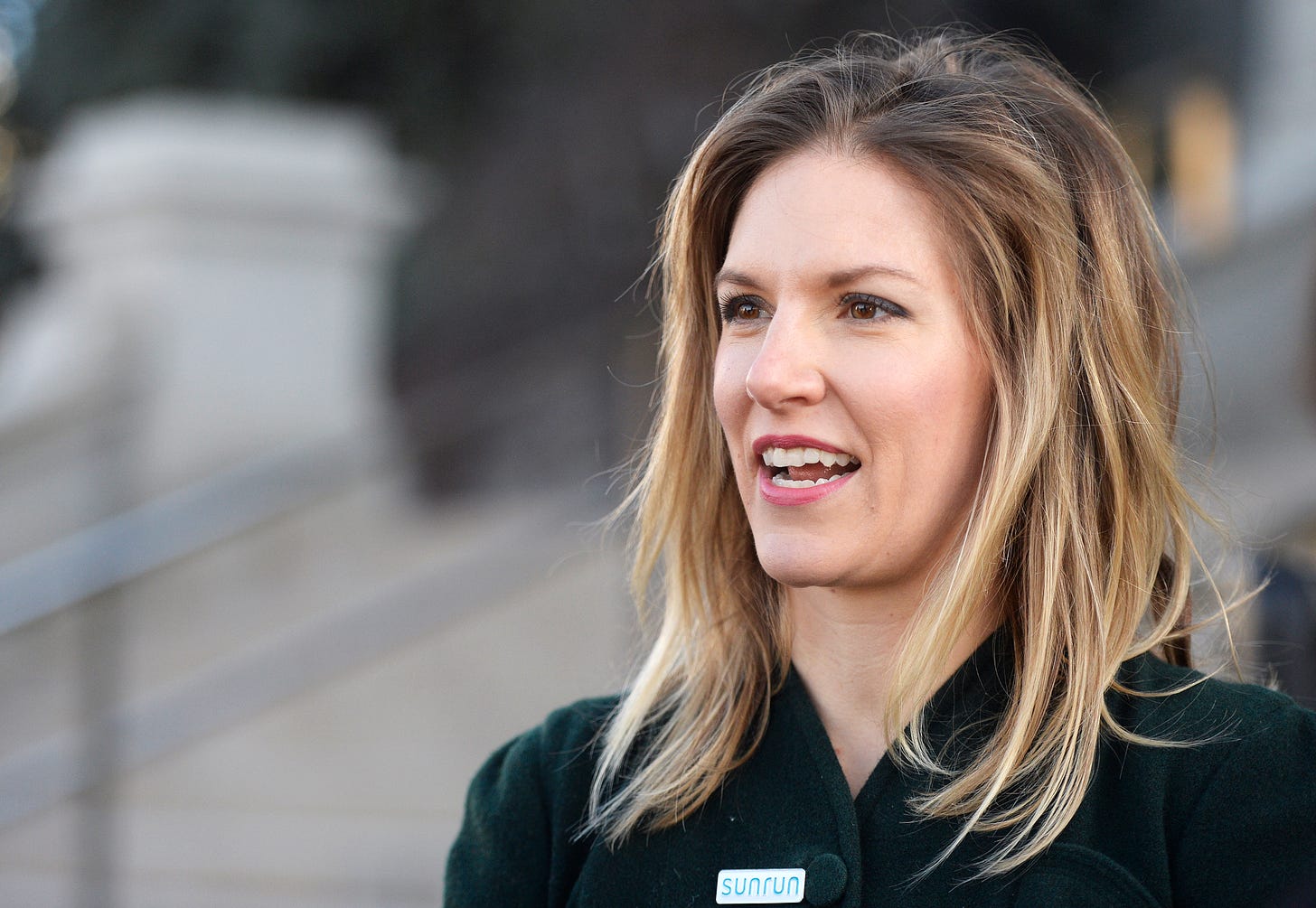It is now widely agreed among energy wonks that the fastest, cheapest way to reduce greenhouse gas emissions is to, as I like to put it, electrify everything. That means cleaning up the electricity system while shifting other energy uses — especially transportation and buildings — off of fossil fuels, onto electricity.
When it comes to electrification, one technology in particular sits at the nexus, helping to decarbonize the electricity system, vehicles, and buildings all at once. I'm speaking, of course, of the humble solar photovoltaic panel, a technology that has defied predictions for decades, getting cheaper and cheaper, spreading faster and faster.
But the spread of solar panels is just the leading edge of a much larger, more important shift to electrified homes and communities. As I've followed electrification and all its implications, one of the people I've learned the most from, in conversation and through her writing, is Lynn Jurich.
In addition to being an insightful observer of the US energy system, Jurich also happens to be the co-founder and CEO of America's largest residential solar company. Sunrun has been around since 2007 and seen some ups and downs, but lately it has been all ups. The company adapted relatively quickly to the pandemic shutdown, invested heavily, and had a banner year in 2020.
Then, to top it off, it bought Vivint, its leading competitor, for $3.2 billion. It is now sitting at the top of a burgeoning residential solar market, with a valuation of some $22 billion.
I talked with Jurich about her new deal with Ford, the reason US residential solar costs twice what it costs in Germany, the ways distributed energy can help the grid, and the next steps for electrification.
Thanks to her for coming on and to you for listening. If you value this kind of work, please consider becoming a paid Volts subscriber.














